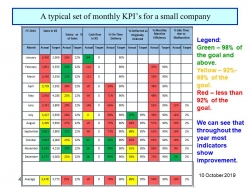While hiking the Israel Trail near Dimona, we often use Patrick’s services, to drive us to the starting point, and from the end point.
We found Patrick a year ago, when we were looking for a driver and compared prices. But now we don’t compare the prices Patrick quotes us with other offers. Patrick has excellent customer service. Comes anywhere, always a few minutes early, and is flexible enough to change the time if we’re early or late. The last time, we postponed pickup by an hour, and Patrick arrived with a smile. In answer to my question, he said he had another job booked, but he found someone else to do it. In other words, he lost a job because we were running late. He did not ask for compensation for the lost job, but we compensated him anyway. For next time, we’ll need an off-road vehicle, and Patrick said he’ll find us someone. We could look for ourselves, and maybe pay less, but we don’t know the off-road drivers in the area, and we trust Patrick completely. He’s earned our trust.
Tami4
The last couple of weeks, we've had problems with the water pressure in our Tami4 water cooler. The technician who came to fix the problem said the water pressure in our house is low, and there’s nothing he can do. We don’t have a pressure meter, but we didn’t experience decreased pressure in any other water outlet in the home, so we didn’t take the technician at his word. A friend told us she experienced the same problem, and the cause was a blocked filter. That seemed much more logical to us.
The second technician to come said the filter’s blocked and needs to be replaced. He tested the water pressure around the house and concluded that it’s a little low, but within code. He also said that he sees the same in other homes in our town. The entire town has a slightly-lower-than-usual water pressure.
My wife says the second technician was excellent, but the watercooler company first sent a technician who cut corners and only wanted to close the service call. As far as we’re concerned, the company’s service department is tainted by the experience, as half of the technicians sent to us were untrustworthy and provided low quality service.
It’s possible we’re the only clients to receive low quality service from a technician sent by the watercooler company. But I wouldn’t bet on it. It’s much more likely that the company has some excellent technicians, and some who provide bad service.
Tami4 is part of the Strauss Group, a large and well established company, and I’m certain the products they provide have gone through quality assurance and are of a high standard. But the technician who comes to the client’s house represents the company more than the sales department, and certainly more than the marketing department or management. The technician is, effectively, Strauss. He represents the company.
It’s my impression that few companies understand the effect customer service has on their brand.
What Are People Saying about You on Social Media?
In my experience, whenever a complaining customer says they’re a lawyer or reporter, they get VIP treatment. The rest get “standard” treatment, which means, from the customer’s POV - hassle and disrespect.
In the age of social media, potential clients can easily see what others are saying about you online, and angry clients are quick to write enraged reviews.
Most people don’t bother to write an online review. For that to happen, we need a motivating energy. Anger is such a motivation, while contentment isn’t. That’s why you see few positive reviews.
As I wrote above, the Strauss Group is a well-known and respected company, and since I can’t use my own clients as examples here, I used my personal experience with them to demonstrate my point. I checked what people were writing about them on Facebook.
Between two advertisements, I found this comment:
“from the first month we got the product, only breakdowns. Waiting for hours on the [customer service] line. Representatives make a joke out of customers and don’t give a solution!!!! Waiting for a solution for days now, nobody cares!!! Luckily all the calls are recorded and I’ve informed the representative that I’m recording them. Their replies are shocking!!!! I am currently waiting on the line, 15 minutes, after being disconnected after an hour!! Shame. You’ve brought us back to the middle ages!”
And the company’s reply:
“Hi ----, good afternoon, we’re sorry for your customer service experience with us. Right now, following your comment, we’re checking your complaint, and will get back to you addressing everything you’ve written. We hope that in the end we’ll be able to make your experience better.”
Further on, more angry comments from other clients. Immediately after a comment by the company’s PR team, announcing support of disabled people, there was a comment that made their statement a farce. The juxtaposition of the two comments is very damaging.
“I left them long ago. Can anyone help me, I’m 100% disabled and I just need someone to screw the watercooler in. the company wants 240 NIS or that I go back to being an active client. I got my product from my daughter who bought a new one.”
And another one:
“Friends I’ve just discovered the company’s been deceiving me for 3 years, selling me replacement parts for an old model after upgrading my equipment. So if you’re disabled I can only assume they’re doing the same to you. I’m going to report this to consumer programs, I assume I’m not the only one.”
To this comment, a company representative replied with a generic response promising to look into the case.
What Are the Root Causes of Angry Comments from Customers?
I’ll say to the Strauss Group’s credit that they have someone monitoring their Facebook page, reading and replying to comments respectfully. Gives immediate answers, and I hope also addresses the issues raised.
I haven’t seen the same done by other companies
But I recommend you tackle the problem at its root. It’s not enough to put out fires as they happen, you should prevent them altogether.
Two things especially frustrate and annoy customers: the first is problems with the call center, and the second is when a technician comes to their home and gives low quality or untrustworthy service.
Let’s start with the call center
See below a quote from a letter written by a frustrated and angry customer:
“No answer at the call center. You have to call many times before anyone answers. Not over one day of trying, but over many days, and weeks. Why? Is it that once you have our money you don’t care anymore?”
This is an issue familiar to many. Even those who, as customer service representatives, don’t answer calls, are frustrated when they try to contact customer service themselves, and aren’t answered.
Previously, we’d wait for a very long time when contacting phone companies, credit card companies, internet providers, etc.
Things got so bad, that in Israel, consumer organizations led to a 2019 law limiting wait times to 6 minutes. It applies to cellular service providers, phone companies, cable and satellite TV companies, internet providers, water, gas and electricity companies, banks, credit card companies, emergency medicine, and insurance companies.
Companies not in the above fields are not covered by the law, including many companies that provide customer service, Strauss among them.
The fact that these companies are allowed by law to take longer than 6 minutes to answer customers doesn’t make the situation forgivable to the general public.
And they vent their anger over social media.
Technicians or representatives providing service at a customer’s home
The other commonly frustrating thing is cancelling plans, maybe even taking time off work, because a representative said they’ll come, and never shows…
In Israel there is a law addressing these situations, according to which if a company’s representative is more than two hours late, the customer is entitled to 300 NIS compensation, and if the representative is late by 3 hours, the amount goes up to 600 NIS.
I think many people are unaware of this law.
Even if the representative showed up on time, they still have many “opportunities” to disappoint us, and make us angry at the company which sent them: for example, lack of professionalism, impolite behavior, or untrustworthy behavior.
How to Handle Angry Customers?
Let’s look at the other side of the coin. If above I described things from the customers’ POV - I now want to look at things from the POV of manufacturing companies.
If both root causes discussed above are under the responsibility of the customer service department, and of service technicians - then these need to be the focus of any business with a customer service department.
I used to work with a company where every morning, customers who received bad service the day before, would speak incredibly rudely to the representative that would call to ask how the service was.
One day the CEO decided to change their approach. She put her best manager as the head of the service department. From that day on, she was the person of contact for all clients, and for technicians who needed to provide service.
At the same time, the company worked with its service representatives. Better representatives were chosen, even when that meant higher costs, and service was monitored.
The change in customer feedback was amazing. Within only a few weeks, it changed completely - no more rudeness or cursing at representatives.
With a few years’ perspective, before writing this article I checked that company’s website. All reviews were positive, and on review sites their score was high.
New Ways to Measure Service
Now that we’ve defined the causes of customer complaints, and how to improve service, we need to set KPIs to measure and monitor it. Without KPIs there can be no improvement.
In an article I wrote six years ago, I suggested three indices:
- Average time from a customer's first call to first response.
- Average time from a customer's first call to solution.
- Percentage of customer calls during the warranty period. Because, after all, we’d rather provide service we can charge for, and not included in the warranty period.
These are less relevant nowadays, because customers are bothered by other things.
We need to measure what customers care about: call centers and bad reviews online.
- So the first index will be, how many customers contacted us and haven’t been answered by end-of-day.
- The second index will be the rate of bad reviews online.
These are not easy KPIs, and especially the second one is difficult to handle. Because if we want zero bad reviews, we have to ensure all customers are satisfied.
Summary and Recommendation
If we need to hire a driver for a trip near Dimona, we’ll go with Patrick no matter the price. The
trust we have in him covers not only the quality of service he provides but also his prices. On the other hand, next time we have a problem with our water cooler, we’ll start off not trusting our service provider, after the very bad experience we had with them.
Of course the point of this article isn’t to complain about Strauss. The issues discussed above are familiar to me from many of my clients, and other customer service experiences.
Over the last few years, consumer habits have changed: customers demand a higher level of service, and don’t put up with bad service or a lack of respect. Social media allows us to vent our frustrations at service providers publicly.
In the past, this “privilege” was reserved only for reporters or lawyers, and so they got better service.
Nowadays, every customer is a “reporter” who can damage the company’s brand.
The change happened quickly. But even people who as customers started demanding better service, timely and transparent – when acting as customer service reps, fail to live up to their own standards. As manufacturers they provide service that as customers they wouldn’t put up with.
Focused and Fast Coaching and Consulting Services for CEOs and Companies during the Coronavirus Crisis
The Business Excellence team can help you build, within 2-4 working days, a plan to survive this financial crisis, or to achieve your goals, as we’ve explained in our first webinar from August 2020 [in Hebrew].
Our experts have a wide and diverse experience of over 100 years combined managing companies and consulting to CEOs – so we will be able to identify the unique needs of each company, and find the safest and fastest way for you to approach the new challenges presented by the crisis, and to ensure your company’s resilience.
If you are interested in my professional help, personally or for your company, the best way to contact me is to send a request through the Get in Touch form here.












 My First Book: Manage! Best Value Practices for Effective Management
My First Book: Manage! Best Value Practices for Effective Management